Hello, fellow sinners! I’m back to working my way through the artistic applications of The Seven Deadly Sins. Or, if you’re going old-school catholic school, The Seven Cardinal Vices. Last time we covered ENVY, which I think is the easiest sin to apply to us professional artists. Next up is a wily one: PRIDE.
Aside: Pride is also known as “superbia” which sounds like the perfect title for a Judd Apatow movie about Brooklyn hipsters moving out to New Jersey. Right?
Let’s all start on the same page and define the term:
Pride is a “feeling or deep pleasure or satisfaction derived from one’s own achievements, the achievements of those with whom one is closely associated, or from qualities or possessions that are widely admired.”
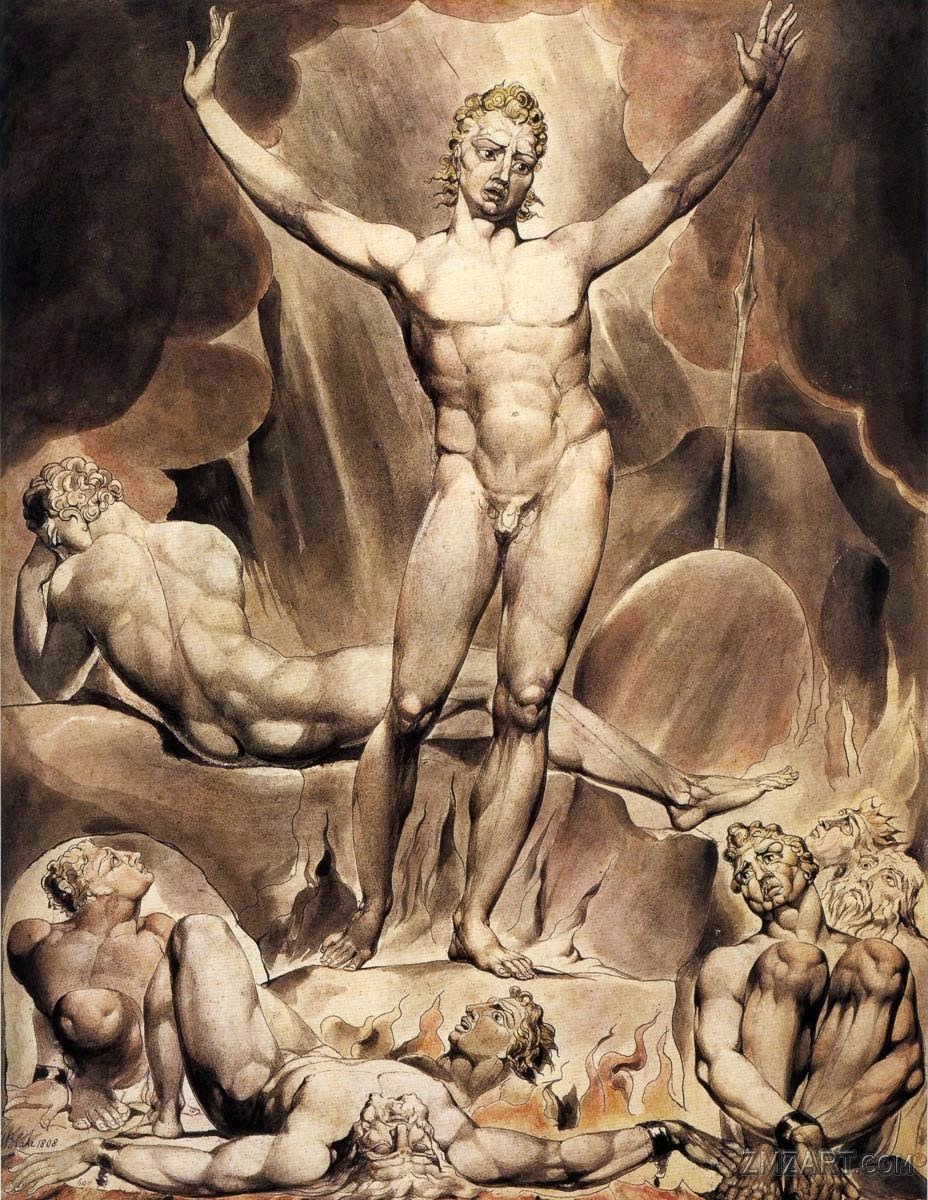 |
| William Blake, “Satan Arousing the Rebel Angels” |
Well, that doesn’t sound so bad, does it? And that’s what’s tricky about Pride. It’s all about balance. Too little pride and you won’t be successful. Too much pride and no one is going to want to associate with you. (Not good for business or friendships.) You need to balance in the sweet spot of having pride in yourself, but always keeping a healthy inner voice of reality keeping you in check. If you fall on the shy side of the introvert/extrovert spectrum, “pride” might sound like a dirty word to you, so feel free to swap the term “pride” with “confidence”.
I find I struggle with the proper balance of pride most acutely in my cover meetings. I need to have enough pride in my work and the work of my artists to be confident in it (because editors always smell the blood of hesitation in the water) and defend it in the discussions. However, I also have to keep my pride in check so that when criticism comes, I do not immediately become defensive and hurt. I have to keep my mind open to the possibility that the non-art folk in the meeting might have some real constructive criticism to make. This is a zen balance I have been fighting to achieve for all of my 13+ years in publishing, and let me tell you, things still get under my skin.
The proper balance of pride is like having a thin skin and thick skin simultaneously.
Let me tell you, you freelancers think getting an email of changes from an AD is hard? Try getting a chorus of often-conflicting demands from a group of people who are not only not artists, but don’t even have the proper art vocabulary to know the difference between contrast and brightness (even when you’ve tried to explain it to them a hundred times). And then sift through all that chaos for the useful bits. Be happy you’re not in-house staff, trust me.
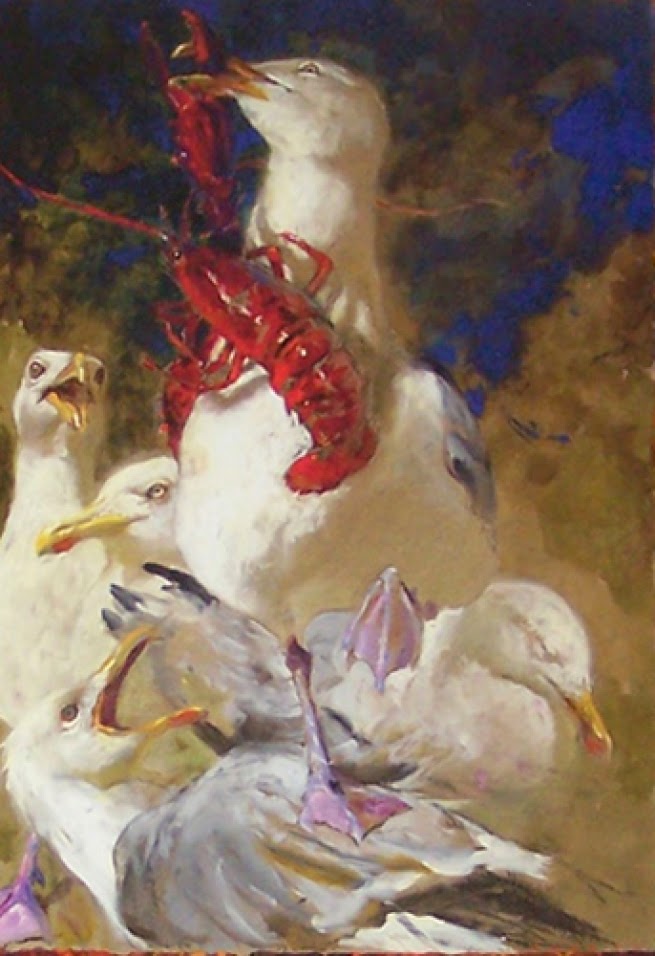 |
| Jamie Wyeth, “Pride” |
Too much Pride… This one is easy to see from the outside. We all know some artists that are overconfident to the point of coming off as assholes. The thing to be careful of in that situation is to make sure you’re not projecting your Envy onto their Pride. (Tricksy deadly sins!) Don’t dislike an artist because they are successful, no matter how young they are or how easy it looks like it came to them. If you must, dislike them because they treat people less successful than they are poorly, or because they gloat about their success and are generally insufferable to be around.
Pridefulness is much harder to diagnose when you’re judging yourself. Are you coming off as confident…or overconfident? Braggadoccio can repel clients and peers, and maybe the only way to know if you’re walking that line well or stumbling is to ask some trusted friends in the industry for their honest opinion.
Too little Pride… I see this problem often in young artists of both genders, although it is definitely more prevalent, in my experience, in female artists. I hate to gender stereotype here, but the basic training our society gives us trains men default to overconfidence in crisis, and trains women to caution and reticence in speaking up under trial. This definitely comes to play in the professional art world as well. I realize I am over-generalizing here, and if your experience discounts this, please let me hear about it in the comments. Regardless of your gender, if you have too little pride, you don’t promote yourself or your ideas well. This can lead not only to letting clients walk all over you, but also makes it harder to find clients in the first place. Confidence comes from self-worth, which grows from pride in ourselves and our work, no matter what stage we’re at in our careers.
There’s also a sneaky little mental loop involved with pride that affects a lot of artists I know, myself included, and it’s called Imposter Syndrome, which is defined as feeling like you are not qualified enough to deserve your successes. If you haven’t experienced it, it sounds ridiculous, I know, but I think all of us have suffered from crippling self-doubt at some point in our profession and can relate to that. In art we base our careers on how other people judge our work, and it’s hard not to be oversensitive to that – whether it’s from criticism OR, ironically, from success. Here’s a great article on some tips to overcoming Imposter Syndrome when you feel it rearing its head.
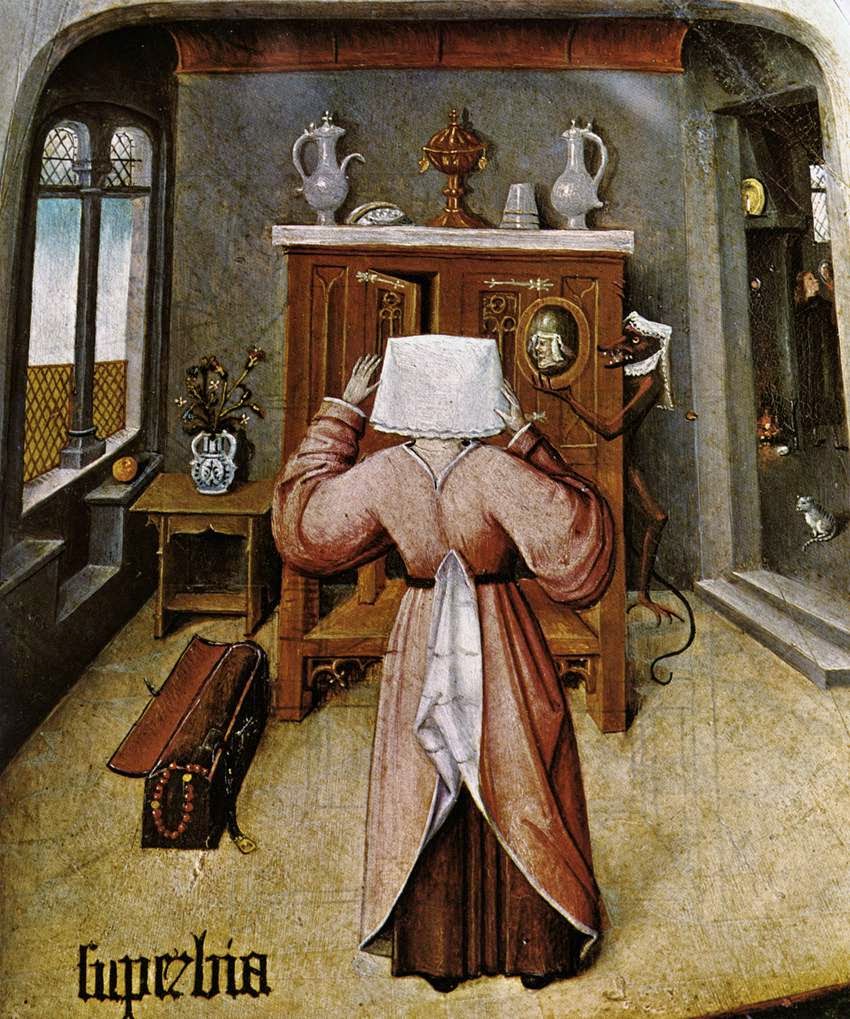 |
| Hieronymus Bosch, “Superbia” – sorry, it’s not a Seven Deadly Sins post without some Bosch. |
Just right… Honestly, I don’t know exactly what the proper balance of pride and confidence is, because it’s a constant struggle. Compounding this problem is the simple fact that even if you are happy with your level of pride and confidence, other people will probably judge you as too prideful, and not prideful enough, all at the same moment. I know that there are people who think I am a loud obnoxious bitch sometimes, and there’s nothing I can do about their opinion. At the same time, there are people who think I am doing a good job at balancing my confidence and pride. You just can’t please everyone any of the time.
Remember that bit about having a thin skin and thick skin simultaneously? At some point you have to have a thin enough skin to remain self-aware…but a thick enough skin to tell everyone else to go screw.
Also extremely relevant to the topic of pride: Dave Palumbo’s great recent post “Getting Over Yourself” – sometimes you have to swallow your pride and just get that job done no matter what.


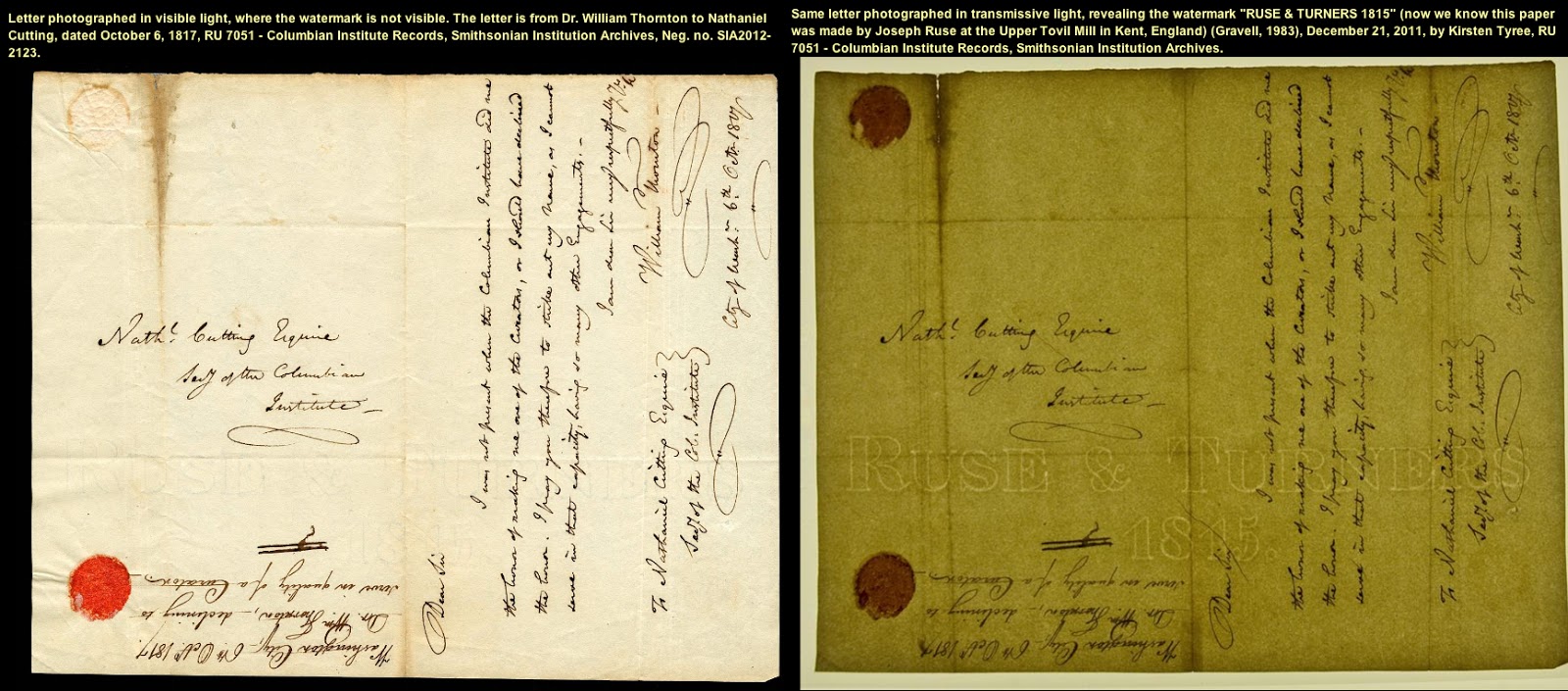
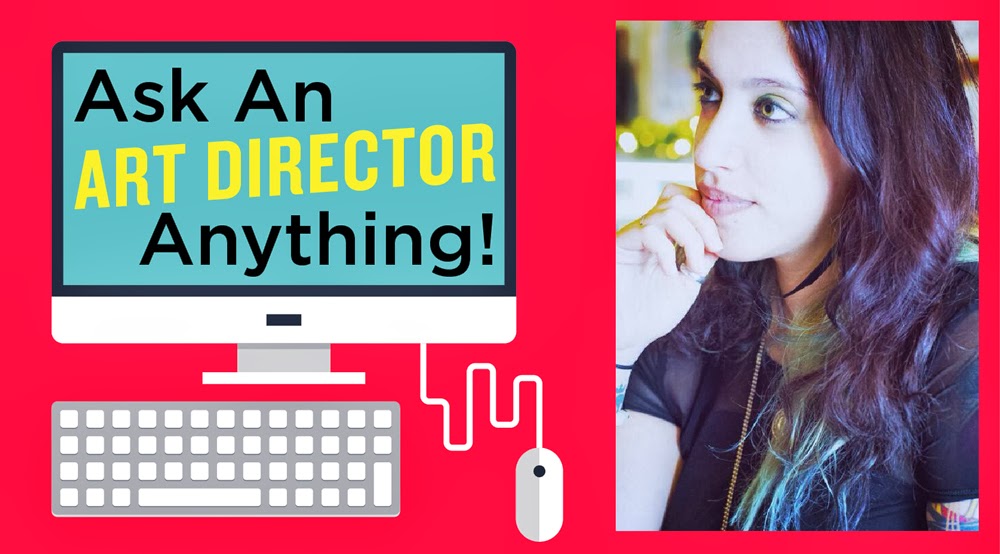


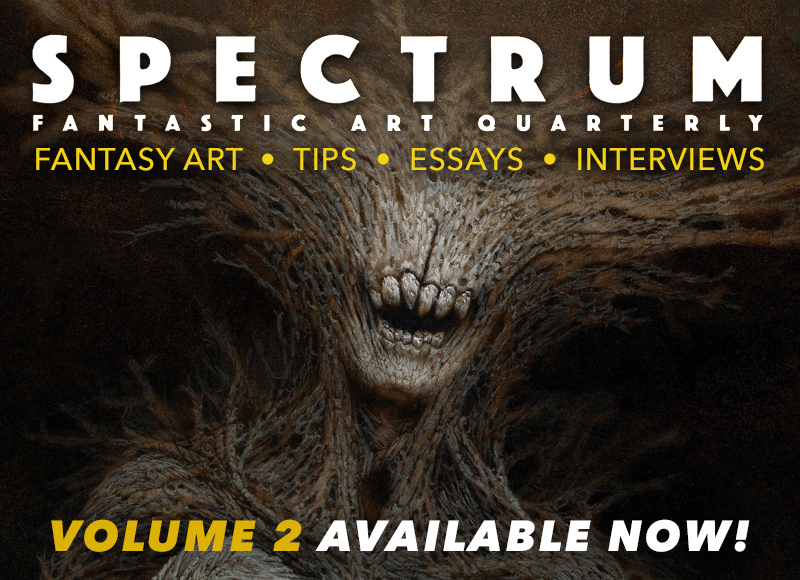
Brilliant Lauren! You touched upon one of my pet peeves, an over abundance of pride that can turn into arrogance in your own work! The minute an illustrator starts to admire their own work, gloating over what they've created, they've short circuited themselves to getting better. At the moment of final completion that sigh of relief that it's done and the satisfaction that you done the absolute best you can at the time is healthy pride, enjoy it for a day your next piece is right around the corner!
No one likes a list of corrections from an editor and the hardest thing to learn is to not take it personal especially when you've poured your heart into your work. In our field we have an endgame and that's a cover, interior illustration or helping to sell a product. We illustrate in solitude but it's still a team effort. Realizing that early on in a career makes the journey a little less bumpy!
I saw this article on the BBC site and thought it might be of interest. The video is only a few minutes and has some interesting bits about “client” reactions to Abram Games work. Pridefulness can be an issue on the part of clients as well as artists.
http://www.bbc.com/news/magazine-29618289
Awesome I'll check it out!
I think it's important to differentiate between the outward displays of pride and the sin of believing your own hype. As freelancers it's important to instill a certain level of confidence to those who trust us with important work, But when we're alone in our studios, I think most, if not all artists experience a healthy dose of insecurity about their work. I say “healthy” because that's what pushes artists to aspire to greatness, the belief that their next piece will be their best.
If you've achieved a certain level of success, you've probably had countless people tell you how great you are. And publicly it's okay to take a bow and feel proud, But privately, If you've endured the frustrations of learning a craft and felt the burning desire to get better, you're all too familiar with self-doubt. You learn to embrace it, be your own toughest critic, or risk become complacent, and that is indeed a sin.
absolutely, it's all a delicate balance.